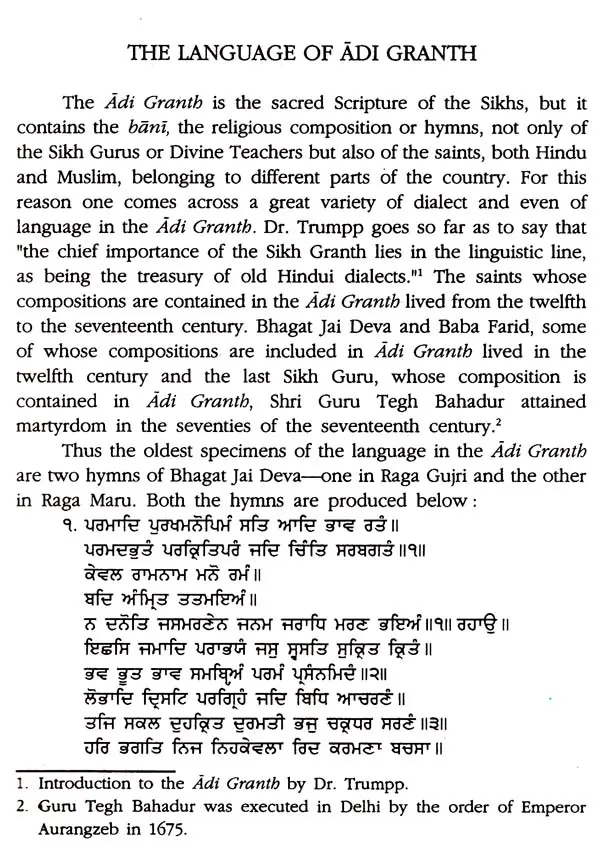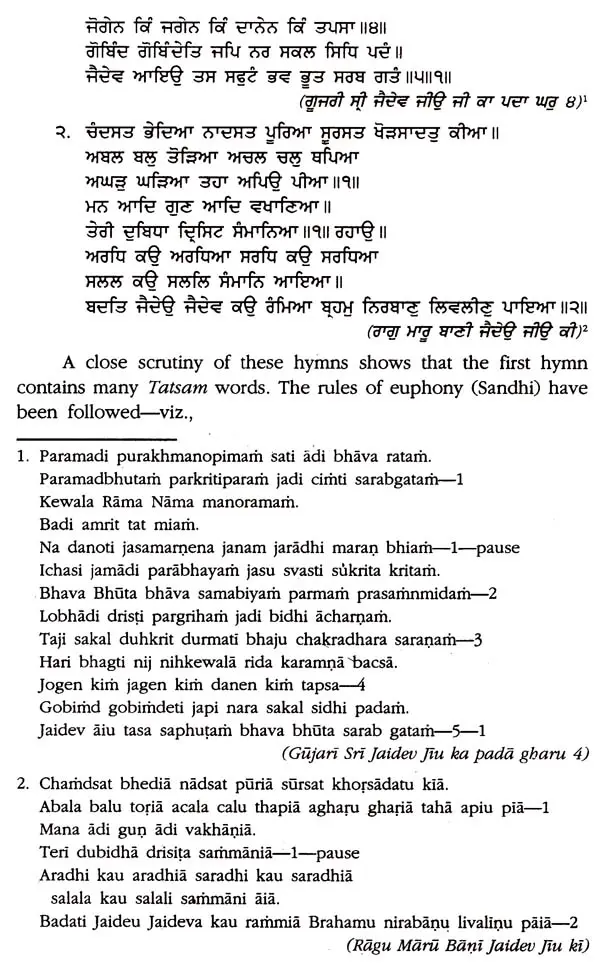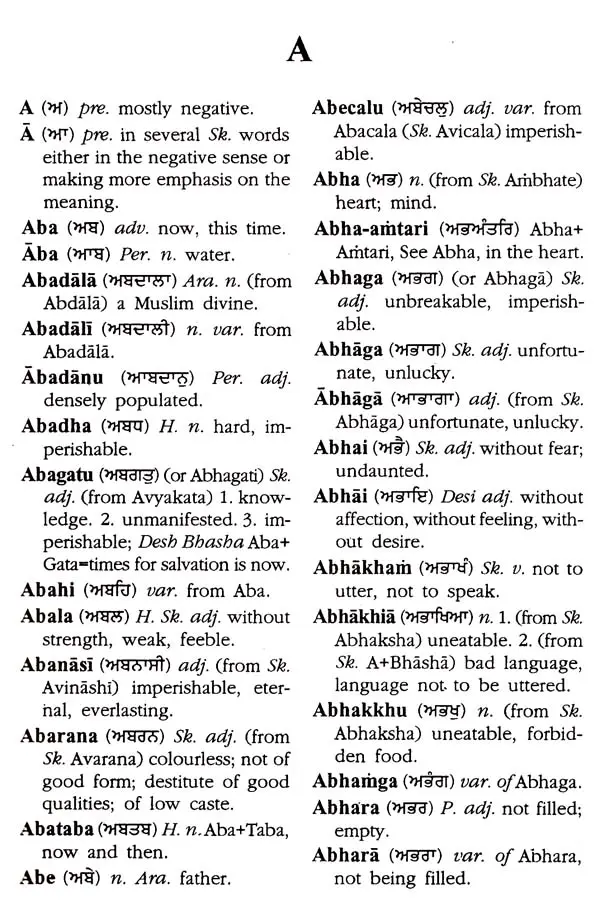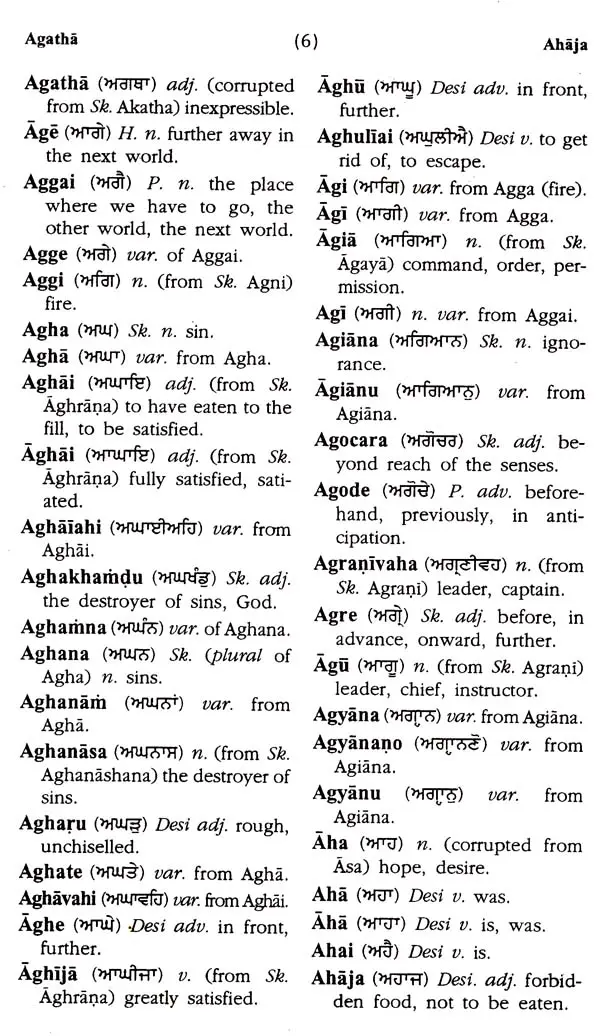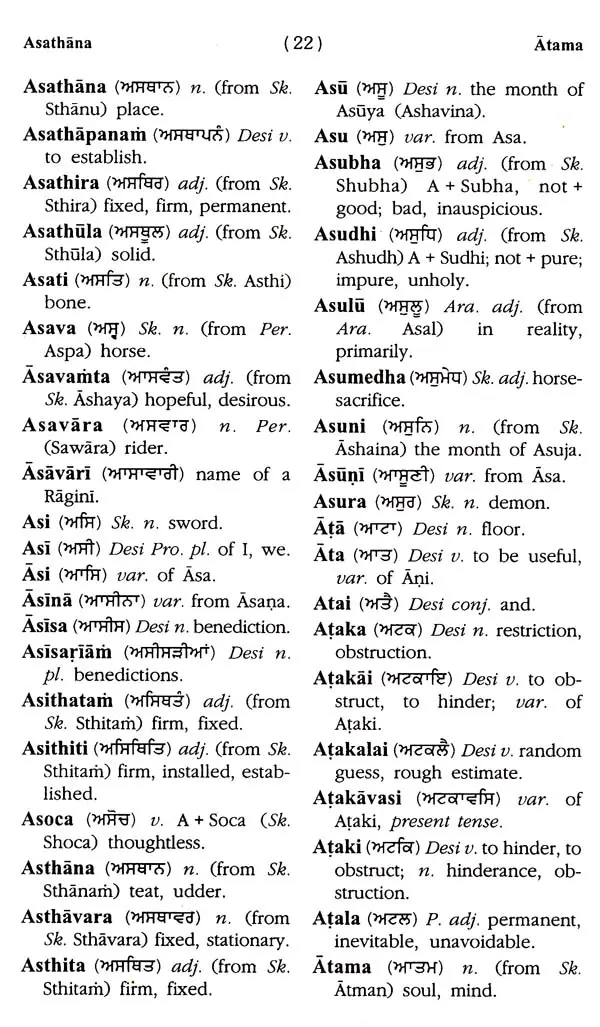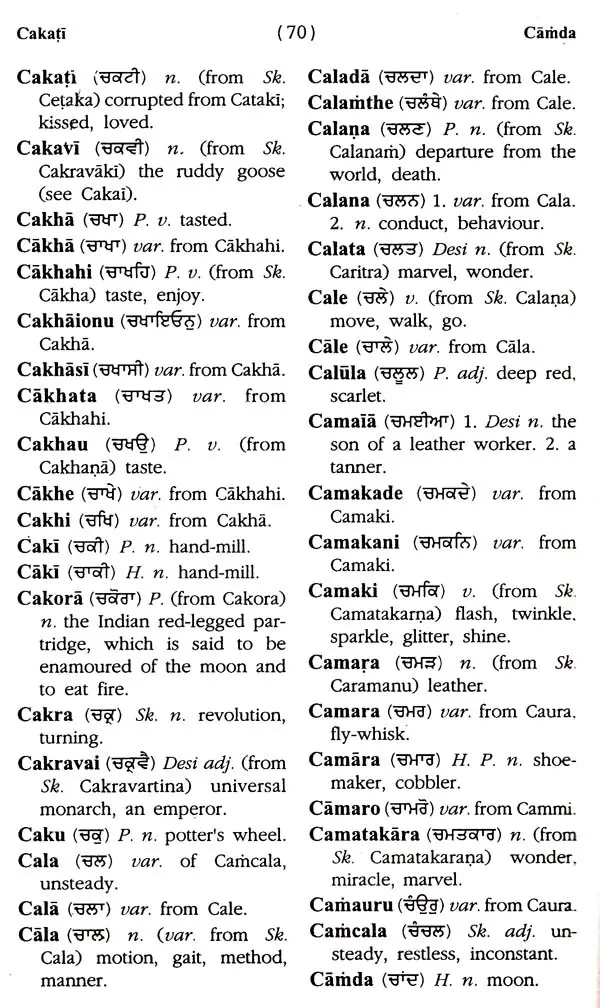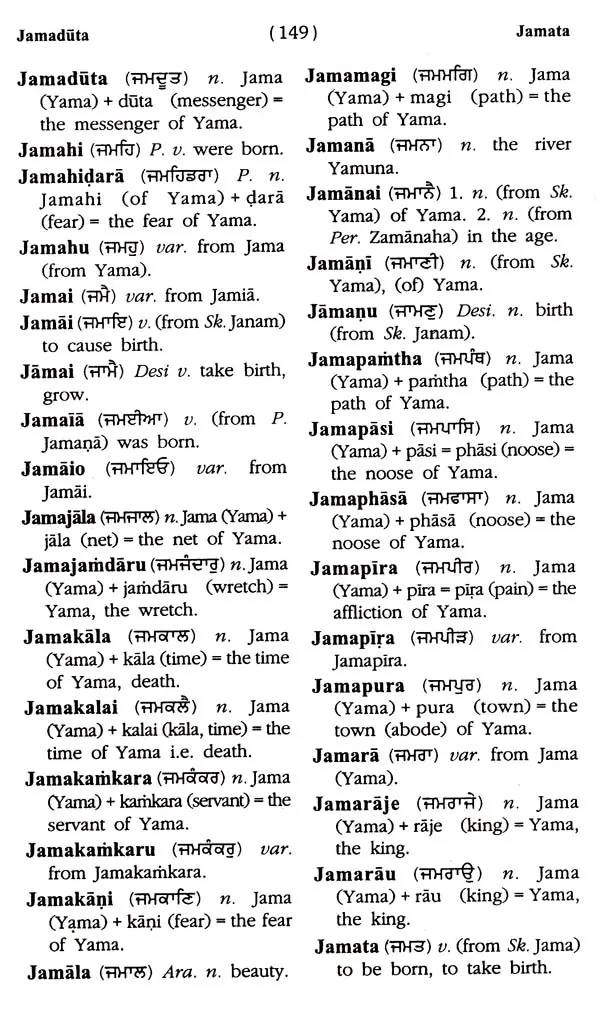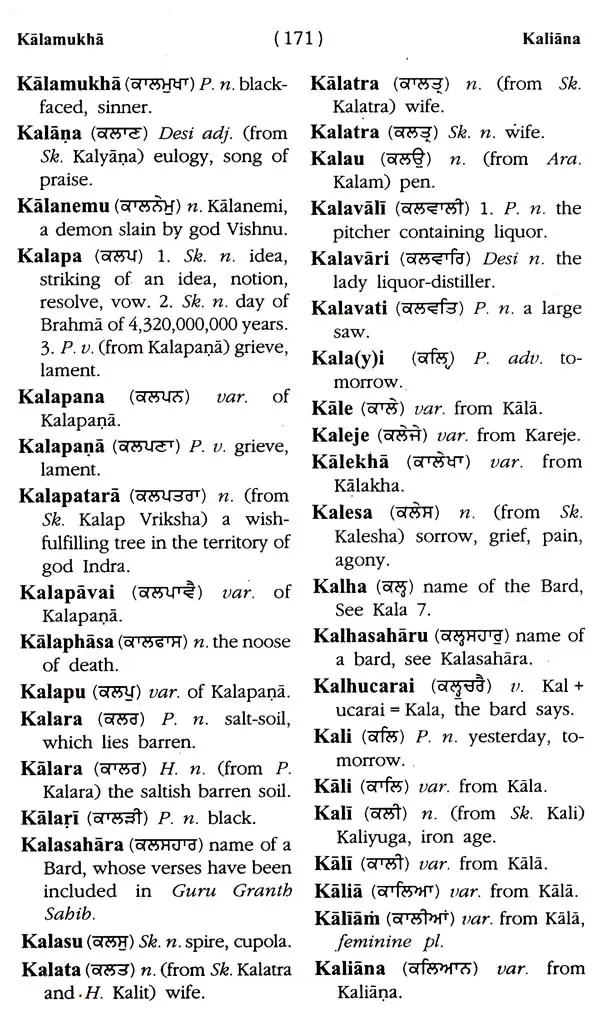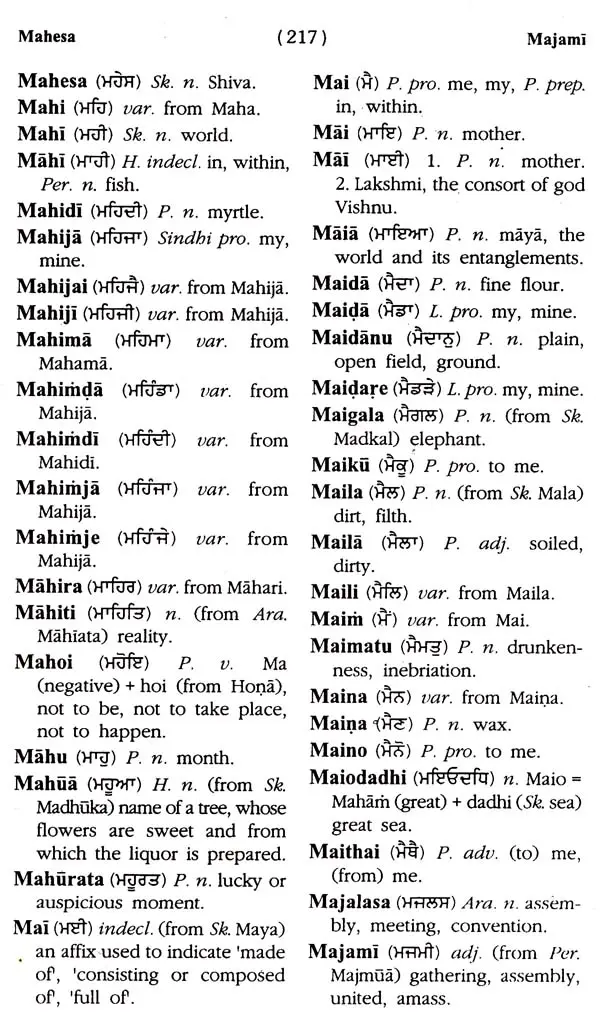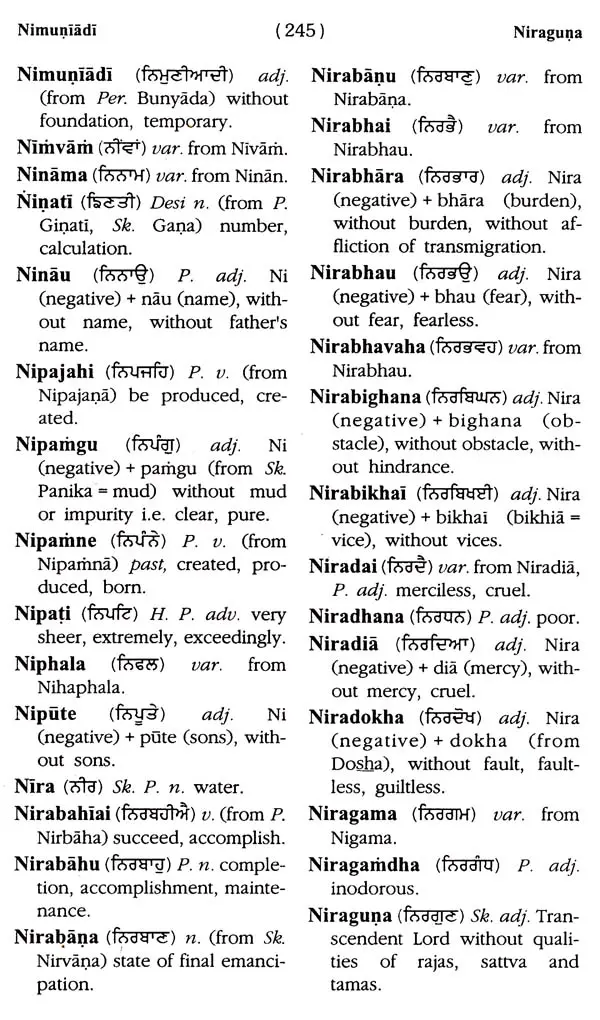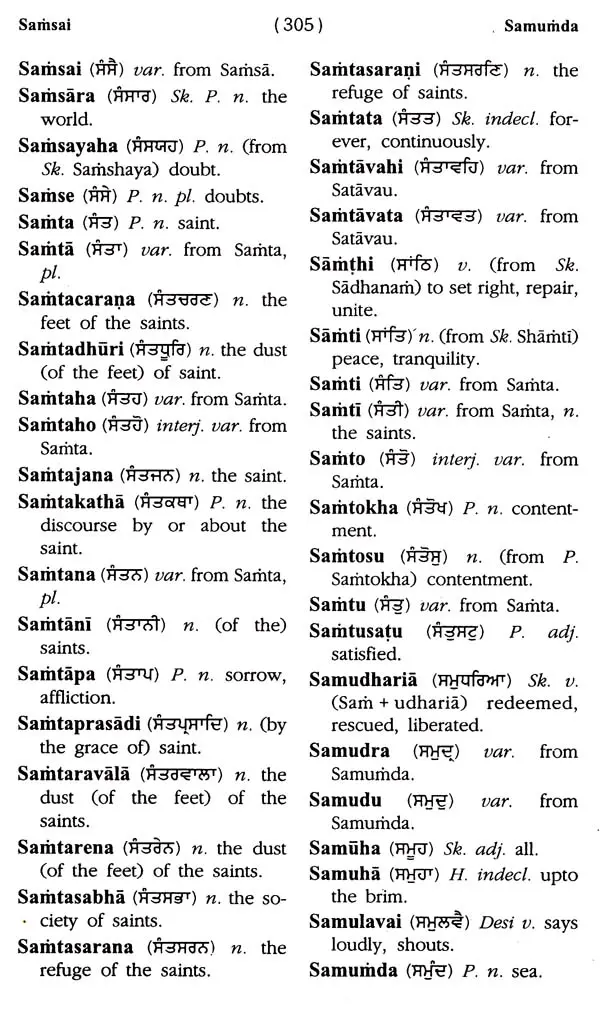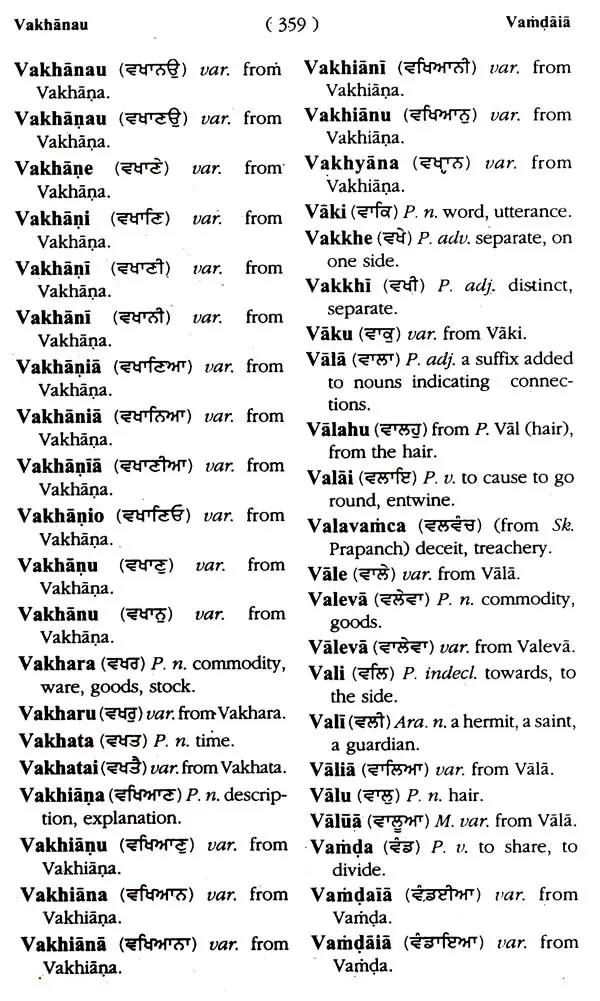
Dictionary of Guru Granth Sahib
Book Specification
| Item Code: | UAZ663 |
| Author: | Surindar Singh Kohli |
| Publisher: | Singh Brothers, Amritsar |
| Language: | English |
| Edition: | 2015 |
| ISBN: | 8172051743 |
| Pages: | 375 |
| Cover: | HARDCOVER |
| Other Details | 8.50 X 5.80 inch |
| Weight | 660 gm |
Book Description
Gun Granth Sahill is the latest sacred book of Asia. It was compiled by Guru Arjan, the fifth Sidh Guru in 1604 It contains the compositions of not only the Sikh Gurus, but also of some prominent Indian Saints including Jaideva of Bengal (of 12th Farid Shakarganj of West Punjab (of 12th-13th Century). These compositions manifest synthesis of Indian Thought, an exposition of the ideal life of an individual and society and consummation of Indian culture. The path of life enunciated by the Sikh Gurus and the Saints in Guru Granth Sahib is universal in character and common for all humanity.
The scope of this dictionary is multi- dimensional. It contains the lexicon of Guru Granth Sahib in order of Roman Alphabet so that an English speaking reader could find the required word easily, though the original word has been given in Gurmukhi Alphabet too. The etymology of each word as far as it is known, has also been appended and meanings of the lexicon have been given in simple and to-the-point- English equivalents. This is the first attempt to prepare such a useful dictionary for an English speaking reader, who would now be able to make a search in this great Spiritual Treasure.
Dr. Surindar Singh Kohli (01.01.1920 21.07.2003), was professor and head of the department of Punjabi, Panjab University, Chandigarh. He had not only made a significant contribution in the field of comparative literature, but had also done a distinct service in the realm of comparative religion in general and Sikh Studies in particular, through his works including, The Sikh Philosophy, Yoga of the Sikhs, Outlines of Sikh Thought, Philosophy of Guru Nanak, Travels of Guru Nanak, Sikh Ethics, The Sword and the Spirit and The Conceptual Dictionary of Guru Granth Sahib. He was an authority on Sikh scriptures and had made their thorough and critical study in a dispassionate and scholarly manner. His works are marked by clarity, brevity and profound scholarship.
It was in early seventies of this century, when some American Sikhs came to India and performed Kirtan (singing of Gur-bäni) in the Gurdwaras in various cities. In Chandigarh, in one of their sittings, I presented one copy each of my book A Critical Study of the Adi Granth to all the foreign visitors. At that time, their leader requested me to prepare a lexicon containing all the glossary of Guru Granth Sahib for their use. That request was the basis for the preparation of this Dictionary. As the first Professor and Head of the Department of Punjabi in Punjab University, I had been very busy with various other projects, therefore I could not find time for the execution of this significant work. Fortunately, Dr. Gurcharan Singh had prepared the word-concordance of the Sikh scripture by that time and the vast vocabulary had been arranged in alphabetical order. I took up the work of transliteration of this vocabulary, in my spare time, but because of my multifarious duties the pace of the work was very slow. Dr. Harbans Singh Cheema of Punjab and Sind Bank came forward to help in this direction, but because of his transfer to Madras, the work could not proceed further. Now the Jubilee Year of the publications by M/s Singh Brothers of Amritsar has proved a blessing in disguise for this important project. On a request from the the work was taken in hand in the beginning of August this year (1990) and by the Grace of Satguru and the Lord, I have been able to finish the work in the first week of October, within the record period of about two months. The work of transliteration of the vocabulary has been mostly done by my wife Dr. (Mrs.) Kulwant Kaur. I feel highly indebted to her.
Dr. Emest Trumpp had rightly said that the Adi Granth is a treasury of old Hindui dialects'. The Gurus and saints whose hymns and compositions are included in Sikh scripture belonged to various parts of the country and also to various strata of society. This is the reason for the multi-lingual stock of the vocabulary of the scripture. There are, undoubtedly, a good number of Tatsam words from Sanskrit, Arabic and Persian, but the Tadbhava diction is huge, enormous and voluminous. The Gurus and saints sang in the folk-languages and dialects, therefore a large number of new formations of words emerged with affixes and case-terminations of various languages and dialects. Besides Tatsam words and Tadbhavas, there are also many Desi words or formations.
The base for the words in this Dictionary is the word- concordance prepared by Dr. Gurcharan Singh. All the main entries of the words have been taken up. The side-words containing minor variations of the main entries have not been included, otherwise the size of this Dictionary would have greatly swelled up. The scheme that has been followed for each word is as follows:
1. The transliteration of the word. 2. The word in Gurmukhi within brackets, as given in the scripture.
3. The language from which the word comes. If the word is a Tadbhava, then the language of the origin and the source-word are mentioned. In the case of words or formations other than Tatsam or Tadbhava words or formations, the word Desi has been written.
4. Grammatical significance of the word, whether it is a noun, pronoun, adjective, adverb, verb, preposition, conjunction or interjection.
5. The meaning of the word in English. I am conscious of my failings in dealing with such a vast vocabulary. Several mistakes might have crept in and there may have been several lapses on my part. I shall be ever ready to receive the suggestions for the improvement of this work.
In the absence of the basic work done by various scholars and institutions like Dr. Gurcharan Singh, Dr. C. Shackle, Khalsa Tract Society, the annotators of Shabdarath etc., this work could not have been achieved within such a short time. I express my gratitude to them. I am also thankful to the publishers for making this work available to the scholars of philosophy and religion and also to the Sikh devotees throughout the world.
**Contents and Sample Pages**

